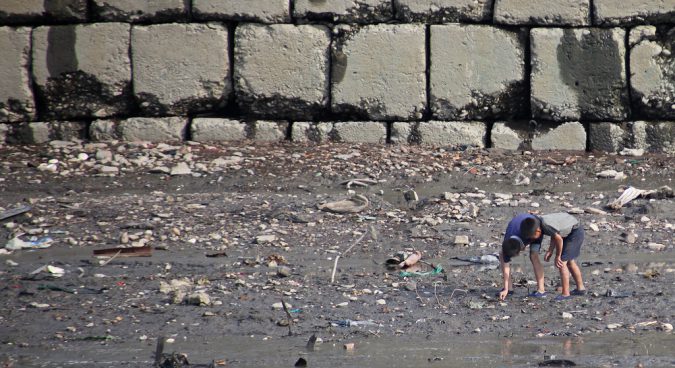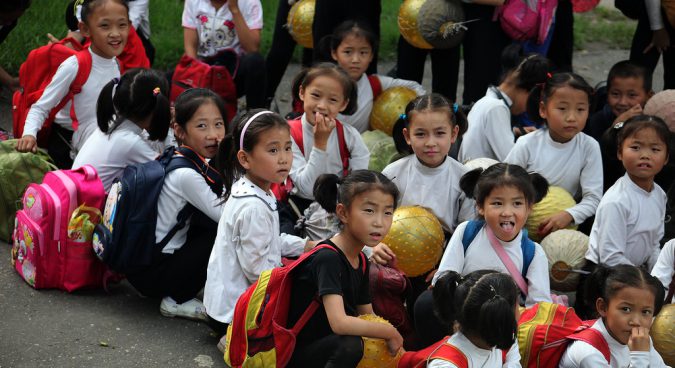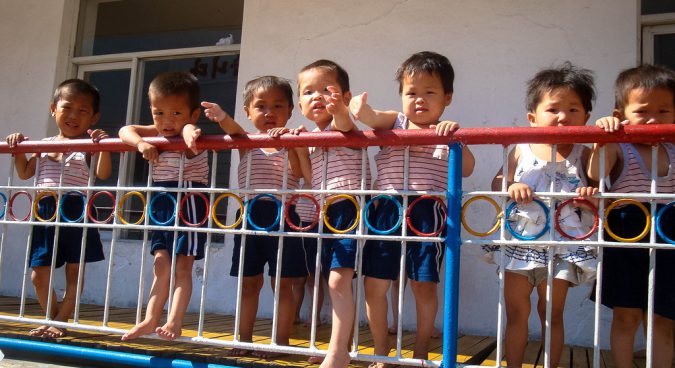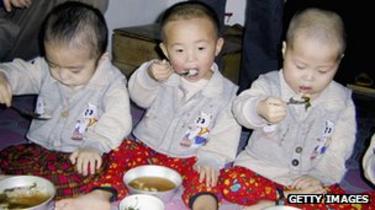Participate
Programmes
North Korea
North Korea (The Democratic People's Republic of Korea - DPRK) is located in the northern part of the Korean peninsula, in East Asia. Occupied by Japan since 1905, Korea gained independence in 1943. The country was afterwards split in two, the northern half administered by the USSR, and the southern part by the United States. This partition was formalized in 1948, with the creation of the Republic of Korea in the South, and the Democratic People's Republic of Korea in the North. Successive North and South Korean offensives on both sides of the border (the Korean War) did not end this division. An armistice signed in 1953 created a demilitarized zone permanently patrolled by more than a million soldiers (North Korean, South Korean and American soldiers), but no peace treaty was signed.Kim Il-sung, President of North Korea since 1948, developed the economy and politics of the country according to the "Juche" doctrine: a classless society, based on the principle of political independence, economic self-sufficiency and military autonomy. After his death in 1994, his son, Kim Jong-Il, became the leader of the country until his death in 2011. His son, Kim Jong-Un, became the "supreme leader" of the country in 2011.
North Korea suffered severe food crises in the 1990s, partly due to bad weather conditions (floods, then drought), and to the very small proportion of arable land in the country (less than 20%), but also to the economic system and the interruption of support from the USSR and, more generally, from the Soviet bloc, which was annually supplying fertilizers and fuel necessary for agriculture. In 1995, the Government sought foreign aid, which lasted until 2006, the date when North Korea ended emergency humanitarian aid, preferring development cooperation. Since then, only six European NGOs - including Triangle Génération Humanitaire – have been authorized to carry out humanitarian and development programmes with permanent expatriate staff in North Korea.
Despite international community support, the food shortages are likely to continue, and the nutritional quality of available foodstuffs is low. The latest UNICEF survey estimated the rate of acute malnutrition among children under five at 38% in 2014. The population, faced with continuing deterioration of living conditions since the mid-1990s, remains very vulnerable.
Since 2000, TGH has been active in various sectors: agricultural development / food security (rehabilitation of polders, support to cooperative farms), rehabilitation of drinking water supply systems, improvement of sanitation infrastructure, distribution of food aid in children institutions, improvement of the living conditions in retirement homes, support for an association promoting the rights of the elderly, etc.
Current programmes
Improving the child institutions' resilience to food shocks, by upholding some local resources for the development of a sustainable innovative aquaculture in DPR of Korea
The project aims to contribute to the sustainable improvement of the food security, by developing aquaculture activities, and the nutritional status of children dependent on social institutions who are the most vulnerable people considering the persistent technical and organizational deficits in DPRK.

Capacity building of the Federation for the Care of the Aged (KFCA) in order to improve care for the elderly in DPRK.
Since 2004, TGH has been working in partnership with KFCA to improve the living conditions of the elderly in North Korea. This new programme aims at strengthening the partner's skills; improving the capacity of the country's retirement homes; setting up multi-service reception centres for the elderly.

Improving diet diversity by increasing vegetables production
Improving children's diet by enhancing animal protein intake
Completed Programmes
Strengthening Civil Society for Improved Old Age Care in North Korea
Rehabilitation of the Paekhak Dong kindergarten following the floods in Rason City
Improving sustainable access to drinking water and sanitation facilities for the inhabitants of the city of Sohung Phase 2, North Hwanghae Province, DPRK
Improving access to drinking water and sanitation facilities for the inhabitants of the city of Sohung
Improving the system of geriatric care for the elderly in the DPRK
Improving food security of elderly people in retirement homes
Rehabilitation of the drinking waterworks damaged by typhoons in Kangwon Province in the Democratic People's Republic of Korea
Improving the quality of food production in the farm of Juk San
Improvement and diversification of the meals served to children in social institutions in Daeane and Sariwon
Over the past two decades, the Democratic People's Republic of Korea has had to face many obstacles, being both subject to many natural disasters and to the deterioration of the economic situation. The country experienced chronic food insecurity, especially due to the limited amount of protein and fat intake.

Improvement and diversification of meals served to children in social institutions
One of the elements of the food crisis presently striking the Democratic People's Republic of Korea (DPRK) is the lack of proteins in the food. This nutritional deficiency particularly affects young children between 0 and 6 years old (11% of the population) whose specific nutritional needs can't be covered.

On July 22, 2010,
Supporting food security in children institutions relying on milk and fish farms in the Democratic People's Republic of Korea
Supporting food security in children institutions depending on Sariwon and Deaene farms in the Democratic People's Republic of Korea
This program completes the previous. It intends to improve milk production in the farms supplying children institutions, the aim being in fine to increase the children's daily nutritional intake.

Improving Consumption of Milk and Dairy Produce inside Institutions for Children
Participation in the rehabilitation of the protection infrastructures of the aquaculture farms of Sinhung and Yonggwang in the Democratic People's Republic of Korea
Sustainable improvement of the sanitary environment in Munchon
The city of Munchon is located on the East coast of the Democratic People's Republic of Korea (DPRK), and counts 42 500 inhabitants. In the 60's, a water network had been achieved by the government, but, because of a lack of maintenance and means, the network has become totally obsolete and presents numerous dysfunctions.

Improve Access to Better Quality Water for the Population of Munchon
Improvement of the potable water network in Munchon
As part of the water and sanitation projects carried out by TGH in this city of 50,000 inhabitants, we performed a new assessment in October 2008. Our aim was to complete the technical documentation about improving and extending the water network; indeed, several areas of Munchun are still not connected.

Food aid in the framework of the Polder rehabilitation scheme
Increase of the food production potential in South Pyongan province. Rehabilitation of Kumsong polder and reinforcement of the Polders Firm's* capabilities.
Support to the federation for protection of elderly people
Additional Rehabilitation of the Waterworks System in Munchon Town (42,000 inhabitants).
Support to Elderly People with No Families - Phase II
In the first phase of this project we rehabilitated three "old people's homes". During phase two, Triangle modernised three other homes and continued assisting "Help Age DPRK". This North Korean agency dedicated to helping elderly people recently became a federation named KFCA
Rehabilitation of the Drinking Waterworks System in Munchon and its Surroundings
Support to Elderly People with No Families - Phase I
Reforestation and Protection of the Environment in South Pyongyang and South Hwangae Province (Phase II)
Rehabilitation of Polders in South Pyongyang Province
Réhabilitation de pépinières et formation du personnel, reforestation et protection de l'environnement (phase I)
Rehabilitation of the Drinking Waterworks and Sanitation Systems in South Pyongyang Province
Logistics Support on the Site of the Ryongchon Rail Catastrophe
In the aftermath of the rail catastrophe that took place on April 22 2004 in Ryongchon, Triangle supplied over 10 tons of soap and 4 tons of soybean oil. This aid was given in priority to homeless victims and the inhabitants of Ryongchon.
Reforestation and Protection of the Environment in South Pyongyang and South Hwangae Provinces (Phase I)
Insulation Works in Schools and Dispensaries in 8 Coop Farms
Last updated April 06, 2017


























 I
I